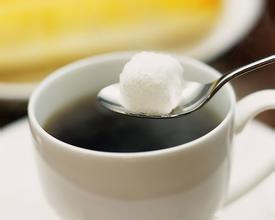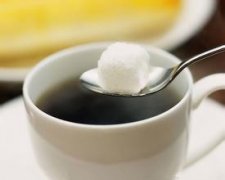Analysis of the nutritional composition of Coffee

● caffeine: caffeine is the most eye-catching caffeine for all adults. It is a kind of phytoflavin (animal muscle ingredient). Its properties are the same as theobromine in cocoa, green tea contains the same theophylline, and the percentage of reduction after baking is very small. Caffeine has a wide range of effects. It can accelerate the metabolism of the human body and keep people clear-headed and sensitive. The refreshing effect of coffee is very popular. Some people will lose sleep after drinking coffee at night, while others will be nervous and overexcited when drinking too much coffee, but many people will not be affected at all. Once we understand the body's response to caffeine, we can use it to meet our needs. Drinking a cup of coffee before the exam or long-distance driving will certainly reduce fatigue.
● tannic acid: after extraction, tannic acid will become a yellowish powder, which is easy to blend into water. After boiling, it will decompose and produce pyrosylic acid, which will make the coffee taste worse. If you brew it well and leave it for several hours, the color of the coffee will become stronger than when it was just soaked, and it will not taste enough, so there will be the saying that "finish it as soon as possible".
● fat: coffee contains fat, which plays a very important role in flavor. After analysis, it is found that there are many kinds of fat in coffee, the most important of which is acid fat and volatile fat acid fat. The strength of acid in fat varies with the type of coffee, and volatile fat is the main source of coffee aroma. Once the fat in roasted coffee beans comes into contact with the air, it will change chemically and the taste will get worse. Protein: the main source of calorie is protein, and like dripping coffee, most of the protein will not dissolve, so no matter how much coffee you drink, the nutrition you get is limited, which is why coffee will become a dieter's sacred food.
● sugar: without sugar, you will not only feel the bitter taste of caffeine and the sour taste of tannin, but also feel sweet, which is caused by the sugar contained in the coffee itself. After baking, most of the sugar will be converted to caramel, bringing a unique brown to the coffee.
● minerals: there are lime, iron, sulfur, sodium carbonate, phosphorus, chlorine, silicon and so on, because the proportion of very little affect the flavor of coffee is not big, combined to bring only a little astringency. Crude fiber: raw bean fiber will be carbonized after baking, this carbon and sugar caramelization combine with each other to form the tone of coffee, but the fiber turned into powder will have a considerable impact on the flavor of coffee. Therefore, we do not encourage the purchase of powdered coffee beans, because we are unable to taste the flavor of the coffee.
The nutritional composition of coffee:
Every 100 grams of coffee beans contain 2.2 grams of water, 12.6 grams of protein, 16 grams of fat, 46.7 grams of sugar, 9 grams of cellulose, 4.2 grams of ash, 120 milligrams of calcium, 170 milligrams of phosphorus, 42 milligrams of iron, 3 milligrams of sodium, 20.12 grams of vitamin B20.12 grams, 3.5 milligrams of nicotinic acid, 1.3 grams of caffeine and 8 grams of tannins. Every 100 grams of coffee extract contains 99.5 grams of water, 0.2 grams of protein, 0.1 grams of fat, 0.1 grams of ash, trace sugars, 3 milligrams of calcium, 4 milligrams of phosphorus, 2 milligrams of sodium, 20.01 milligrams of vitamin B and 0.3 milligrams of nicotinic acid. Dissolve 10 grams of coffee in hot water with 0.04 grams of caffeine and 0.06 grams of tannins.
Important Notice :
前街咖啡 FrontStreet Coffee has moved to new addredd:
FrontStreet Coffee Address: 315,Donghua East Road,GuangZhou
Tel:020 38364473
- Prev

China will become the largest coffee consumer in the world
Experts estimate that China will become the largest coffee consumer in the world. By 2020, if China drinks one cup of coffee per person per day, the coffee bean market alone will reach 50 billion US dollars a year, and the entire industry will generate a market of hundreds of billions of US dollars. The popularization of coffee has become a must. Through the eight cities of Beijing, Shanghai, Guangzhou, Chengdu, Chongqing, Hangzhou and Nanjing.
- Next

The journey of coffee from Africa to China
Coffee originated in Africa and little is known about it. In fact, Africa Ethiopia is the hometown of coffee, producing the best Arabian coffee in the world. Soil, weather conditions and an altitude of more than 2000 meters above sea level have made many countries in Africa create an ideal scene for the growth of coffee. At present, coffee production in Africa accounts for about 13% of the world's total output, and coffee income is part of Africa.
Related
- Detailed explanation of Jadeite planting Land in Panamanian Jadeite Manor introduction to the grading system of Jadeite competitive bidding, Red bid, Green bid and Rose Summer
- Story of Coffee planting in Brenka region of Costa Rica Stonehenge Manor anaerobic heavy honey treatment of flavor mouth
- What's on the barrel of Blue Mountain Coffee beans?
- Can American coffee also pull flowers? How to use hot American style to pull out a good-looking pattern?
- Can you make a cold extract with coffee beans? What is the right proportion for cold-extracted coffee formula?
- Indonesian PWN Gold Mandrine Coffee Origin Features Flavor How to Chong? Mandolin coffee is American.
- A brief introduction to the flavor characteristics of Brazilian yellow bourbon coffee beans
- What is the effect of different water quality on the flavor of cold-extracted coffee? What kind of water is best for brewing coffee?
- Why do you think of Rose Summer whenever you mention Panamanian coffee?
- Introduction to the characteristics of authentic blue mountain coffee bean producing areas? What is the CIB Coffee Authority in Jamaica?

